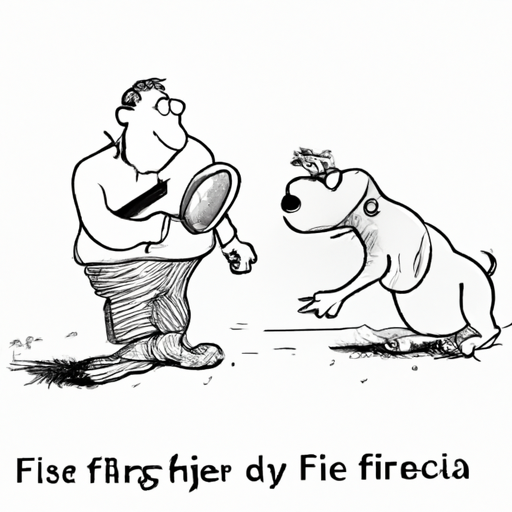Fleas are a common nuisance for dogs and their owners alike. But did you know they can also bite humans? If you have ever wondered why, the answer lies in the very nature of these tiny pests. Let’s delve into the details.
Understanding Fleas
Fleas are small, wingless insects that survive by feeding on the blood of their hosts. They are excellent jumpers, capable of leaping distances up to 100 times their body length. This ability allows them to move between hosts with ease, making them a common problem for pet owners.
- Life Cycle: Fleas go through four stages in their life cycle: egg, larva, pupa, and adult. The entire process can take anywhere from two weeks to eight months, depending on the conditions.
- Host Preference: While fleas certainly prefer animals with thick fur, such as dogs and cats, they are not picky eaters. In the absence of their preferred hosts, they will bite humans too.
- Dangers: Flea bites can cause itching, irritation, and in severe cases, an allergic reaction. They can also transmit diseases.
Why Fleas Bite Humans
Fleas bite humans for the same reason they bite dogs: they need blood to survive and reproduce. A flea can live for up to 100 days without a meal, but females must have a blood meal before they can produce eggs.
- Opportunistic Feeders: Fleas are opportunistic feeders. If your dog is not available, they will resort to biting humans.
- Proximity: Humans often get bitten because they are in close proximity to a flea-infested pet or environment.
- Lack of Other Hosts: If a dog or other suitable host is not available, a flea will bite a human.
Preventing Flea Bites
Preventing flea bites is a two-pronged approach. It involves treating your pet and your home simultaneously.
- Treat Your Pet: Use a flea comb regularly to check for fleas. Consult your vet for the best flea treatment products for your dog. Regular grooming and bathing can also help.
- Treat Your Home: Vacuum regularly, especially areas where your dog spends most of their time. Wash your dog’s bedding in hot water once a week. Consider hiring a professional pest control service if the infestation is severe.
| Actions | Pets | Home |
|---|---|---|
| Regular Checks | Use flea comb | Vacuum often |
| Cleaning | Bathe and groom regularly | Wash pet bedding |
| Treatment | Use vet-recommended products | Consider professional pest control |
Dealing with Flea Bites on Humans
Flea bites on humans usually appear as small, red bumps and are often found around the ankles or legs. Here’s how you can deal with them:
- Avoid Scratching: Scratching can lead to infection. Use an anti-itch cream or lotion to soothe the itch.
- Clean the Area: Wash the area with soap and warm water.
- Consult a Doctor: If the bite doesn’t improve in a few days, or if it becomes more painful or swollen, consult a doctor.
FAQ
Why do fleas bite humans?
Fleas bite humans because they need blood to survive and reproduce. If their preferred host, like a dog, is not available, they will bite humans too.
How can I prevent flea bites?
Preventing flea bites involves treating both your pet and your home. Regular checks, cleaning, and employing the right treatments are key.
How can I treat flea bites on humans?
Avoid scratching the bite. Clean the area with soap and water. Use an anti-itch cream or lotion. Consult a doctor if the bite doesn’t improve or worsens.
Can fleas cause diseases in humans?
Yes, fleas can transmit diseases like plague and typhus to humans, though it’s rare. They can also cause allergic reactions in some people.
What should I do if my home is infested with fleas?
If your home is infested with fleas, you should clean and vacuum regularly, especially the areas where your pet spends time. You may also need to consider professional pest control.
In conclusion, while fleas do prefer biting your furry friends, they can and will bite humans if the opportunity arises. As a caregiver, your role extends to ensuring a safe and healthy environment for both your pet and your family. By understanding why and how fleas bite humans, you can take the necessary steps to prevent and treat flea bites effectively.



